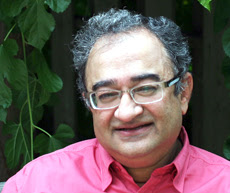October 2, 2006
A bully in military uniform
By TAREK FATAH
The Globe and Mail
Many Canadians are rightfully upset at the derisive manner with which Pakistan's ruler, General Pervez Musharraf, mocked our soldiers serving in Afghanistan. Others are simply scratching their heads, not knowing what to make of the machismo of the general as he locked horns with Carole Off of CBC Radio.
When asked to comment on growing doubts about Pakistan's commitment to seal its borders and restrict the movement of the Taliban, who have inflicted many casualties on Canadian troops, Gen. Musharraf bristled at his host and mocked Canadians as cry babies weeping over the deaths of "four or five" dead soldiers.
The undiplomatic language and blunt posturing of Gen. Musharraf needs to be understood in the context of the country he rules and the armed forces he commands.
Unlike most countries that have an army, in the case of Pakistan, the army has a country. Whereas the armed forces of most countries are created to defend the national interests of its people, in Pakistan, the army uses the country to protect its own interests, often at variance with those of its citizens.
From its inception in 1947, Pakistan has been held hostage by its military with a series of wars, both internal and external, that have left the nation in ruins, not in an economic sense, but in terms of its natural socio-political development.
Merely months after independence, Pakistan's army went into action to annex the independent State of Kalat in Baluchistan (an on-again, off-again insurrection continues there to this day). This was followed by the first India-Pakistan War in 1948, then the Afghan-Pakistan border skirmish over Pakhtunistan in 1955-1957, which again erupted in 1961 and 1963.
However, the defining role of Pakistan's military came in 1958 when, fearing the elections of a left-wing government in the January, 1959, elections, the military staged a coup and imposed martial law.
Then, in 1965, facing widespread protest against a rigged election, the late field marshal, Ayub Khan, tried to wrap himself in the flag by invading Indian-held Kashmir in August, 1965, which led to the 17-day second war with India.
By 1970, the Pakistani armed forces had got the country involved in civil war that led to the third Indo-Pakistan war in 1971, leading to the tragic breakup of the nation into two parts with a million dead.
With every war, with every internal insurrection, the Pakistan military gained more power and increasing control, not just of the politics of Pakistan, but also its economy and its narrative.
From cereals to nuclear bombs, from housing construction to cement manufacture, transportation to taxation, Pakistan's army rules the country with an iron grip.
However, the one factor Gen. Musharraf could not understand in Ms. Off's question was her concern for the ordinary Canadian soldier. This was a concept foreign to most elites in Pakistan, including military officers who count among them the world's richest men.
For Canadians, the ordinary private's life is worth the same as that of General Rick Hillier. We count the names of each dead soldier and grieve with their families. For Gen. Musharraf, this is a foreign concept.
Pakistanis are never told the names of the 500 soldiers who died fighting al-Qaeda. The only names that appear are those of the officers.
In the nearly dozen wars Pakistan has fought against external and internal foes, the dead infantryman is mere gun fodder, unseen, unheard, and with no memorial to his name.
When Gen. Musharraf ordered his troops to invade Indian-held Kashmir in the 1999 Kargil war, he had no strategic objectives, he had no authority, he only had to prove his machismo to his fellow generals.
For that bravado, thousands died on both sides. Indians report than many of the dead Pakistani soldiers had been eating grass before they died of hunger and thirst.
My message to Gen. Musharraf is this: Don't lecture us Canadians on bravery and courage. Courage is not to lead men into battle and treat them as gun fodder while one sips Murree Beer.
---------------------------
Tarek Fatah, a former student activist in his native Pakistan, is host of The Muslim Chronicle on CTS-TV and founder of the Muslim Canadian Congress.
Monday, October 02, 2006
Subscribe to:
Post Comments (Atom)



No comments:
Post a Comment